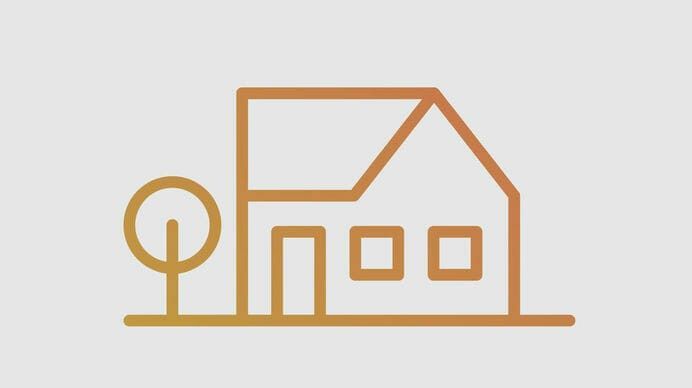If you are considering refinancing your mortgage, you are not alone. Millions of people refinance their mortgages every year for a myriad of reasons: to get a lower interest rate, to lower monthly payments, or to speed up mortgage repayments.
Whatever your reasons for considering refinancing, we’re here to walk you through the pros and cons.
What is mortgage refinancing?
When you refinance your mortgage, you are exchanging your current mortgage terms for (usually) better terms.
At its core, refinancing is when another company buys out your current mortgage and starts a new mortgage with their company. In some cases, you can also refinance with your original lender, but the process remains the same. You change everything: mortgage rates, payments, how long it takes to pay them off.
Since you are essentially taking on a new mortgage, you will also have to pay closing costs again. This will be anywhere from 3% to 6% of the cost of refinancing. And you need to decide whether or not to pay this refinancing money.
What to look for before refinancing
The decision to refinance depends on your current situation. Ask yourself the following questions to see if refinancing is right for you:
1. What is my current interest rate?
Interest rates are high now. If your interest rate is below current rates, this may not be the right time to refinance. Unfortunately, chances are that if you bought a house in the last 10 years, you won’t save money by refinancing it right now.
However, if your goal is to get a loan with lower monthly payments or to shorten your mortgage repayment time, you may not care about the mortgage rate as long as these other conditions are met.
Read more: When the Fed raises interest rates, what does that mean for your wallet?
2. Will I be reimbursed for refinancing costs?
Refinancing your home costs money, as you must repay closing costs, usually somewhere between 2% and 6% of your refinancing cost.
If the thousands you’re spending on refinancing your home doesn’t save you money or time in the long run, it might not be worth it. Refinancing should move you forward on your mortgage, and if it doesn’t, then you should wait.
3. Will it save time on mortgage payments?
You can refinance from a 30-year fixed mortgage to a 15-year fixed one and cut your loan for more than ten years. This can be helpful if you plan to stay in your home for the duration of the loan and don’t plan to move anytime soon.
However, this is not the only way to cut payments. You don’t need to refinance your home to pay it off early:
- You can add money to your regular payment.
- You can add an additional payment each year.
- You can pay off your mortgage every two weeks.
- You can add lump sums when you receive windfalls.
Nothing says you need to refinance to save money on interest payments when you pay off your mortgage.
Read more: What percentage of your income should be a mortgage loan?
4. Will refinancing result in a lower payment?
Sometimes people refinance to have a lower monthly payment. They do this by extending the loan or lowering the interest rate. The problem is that right now, interest rates are not low enough to exceed what most people are likely to pay. And you can extend the payment, but it will mean that you pay more interest over time.
If you’re looking to refinance because you’re struggling for money, it might be worth cutting your budget elsewhere. You don’t want to be saddled with a loan that has bad terms in the long run because you were looking for relief in the short term.
Read more: What does a real budget look like?
5. What are your reasons for refinancing?
Let’s say you just got divorced, or you split up a business, or you need to get someone’s name out of the house. In such cases, you may not need to refinance. Instead, you can ask your lender for a loan change or loan suggestion.
Meet Jones and Mark. They are going through a divorce. They have a $250,000 mortgage they took out in 2020 when loan prices plummeted. Their share is only 2.25%. If they refinanced remove the Jones name from the property, they should use today’s rates, which are around 6.25% (with some fluctuation). This is a huge financial jump that will become a burden for Mark.
Instead, they go to their lender and ask for “loan approval,” which means accepting an existing loan and allowing you to take the person’s name off it without fully refinancing. This is great for times like these when the stakes are rising.
Is now a good time to refinance?
Differently. For most people, no. Mortgage rates are at a 15-year high and most mortgage experts advise against refinancing until the interest rate falls below 0.75% of your current mortgage. For most people who follow this advice, now is not the right time to refinance your home.
But if you had sub-optimal conditions when you first bought a house, this could be a good time. Let’s say when you bought a house your loan was hovering around 580 and for various reasons you couldn’t get an interest rate below 7%. Now could be a great time to refinance your home if you have a better credit score now.
Read more: How does your credit score affect your mortgage rate?
Top Mortgage Refinancing Lenders
Credible
In just three minutes, you can pre-qualify for mortgage refinancing with Credible. During this process Credible provides quotes from multiple lenders without affecting your credit score. If you see a rate you like, you can do everything online, including uploading documents through the site and following the progress of your application.
Credible can also help you with cash refinancing. However, when it comes to mortgage refinancing, one of Credible’s best selling points is its transparency. Right from the start, you can see what fees you will have to pay and the interest rate you will be given to help you make a fully informed decision before completing a detailed application.
Credible Operations Inc. NMLS #1681276, “Reliable”. Not available in all states. www.nmlsconsumeraccess.org.
fiona

fiona helps you shop and compare mortgage rates from multiple lenders in one place. All you need to do is fill in a few fields on their rate table and hit search to see the rates for your loan amount and credit score, among other variables. fiona can help you find both fixed and adjustable rate mortgages and you can refinance a single family home, condo or duplex, triplex or quadruplex.
If you like any of the bets you see on the screen, you can click to see more details. This will redirect you to the lender’s page where you will enter additional information for a personalized bid. Your credit will only be reviewed if you choose to continue with the lender of your choice, so this is a great way to get an idea of the rates available to you.
bottom line
Refinancing your mortgage is a very personal decision. You must decide what is best for you and your family. If current rising rates are still lower than your interest rates, this could be a great time to refinance. If it doesn’t, you’ll have to see if the pros outweigh the cons of refinancing your mortgage.
See if you can do something else instead. Maybe breaking into a house to save on mortgage costs will help you boost your budget a bit. This may give you some wiggle room to avoid lowering interest rates.
You can also get creative with your part-time jobs and save a little each month for a mortgage to keep costs down without refinancing.
In general, now is not the best time to refinance your mortgage, and you should explore other options to help with your mortgage if that is your primary reason for refinancing. Because you’re probably not going to save money or lower your interest rate right now.
Read more:
Reliable disclosure of credit information – In order to check the rates and conditions to which you are eligible, Credible or our partner lender(s) perform a preferential credit check that will not affect your credit score. However, when you apply for credit, your full credit report will be requested from one or more consumer information agencies, which is considered hard credit and will affect your credit.


